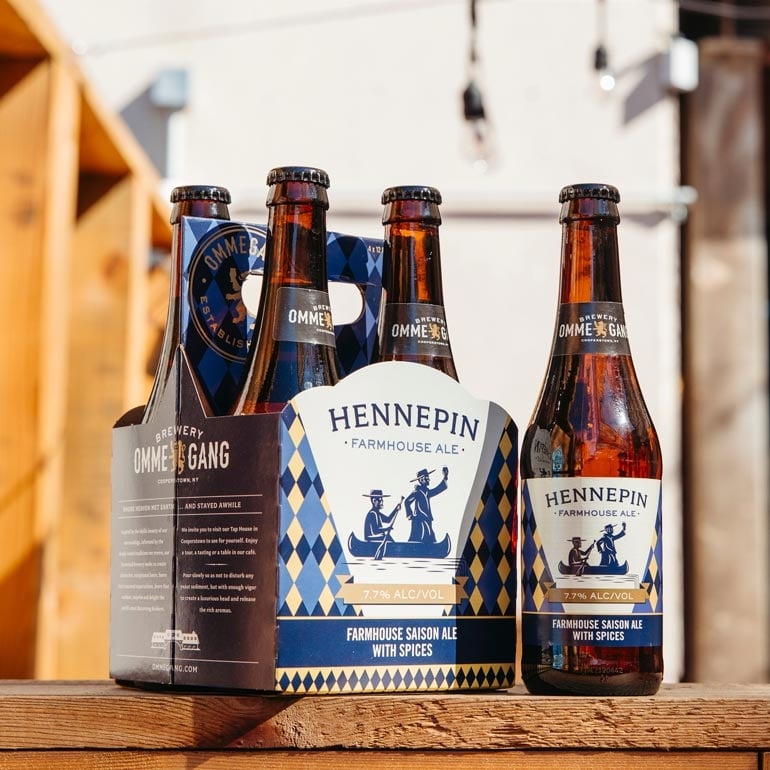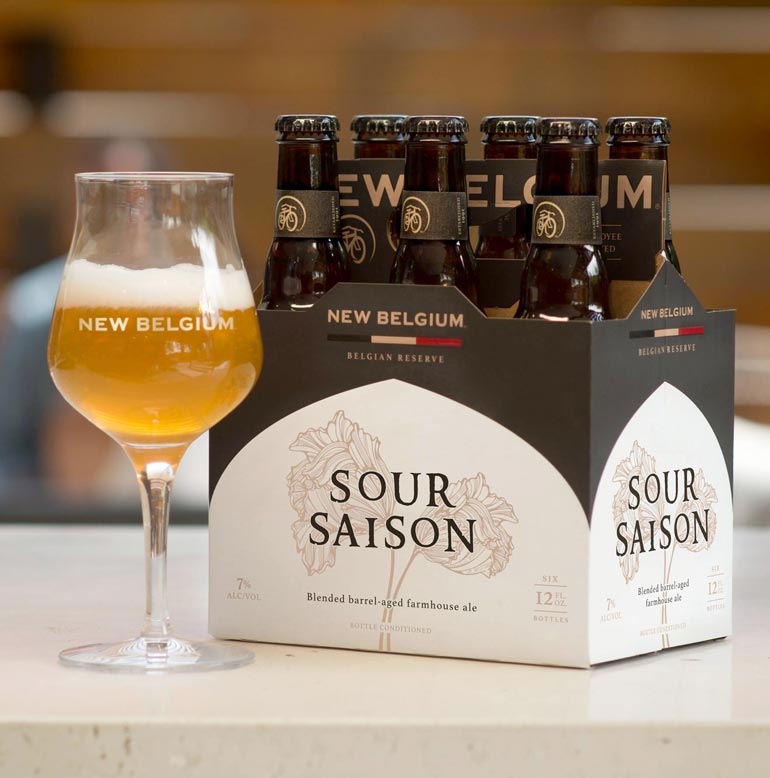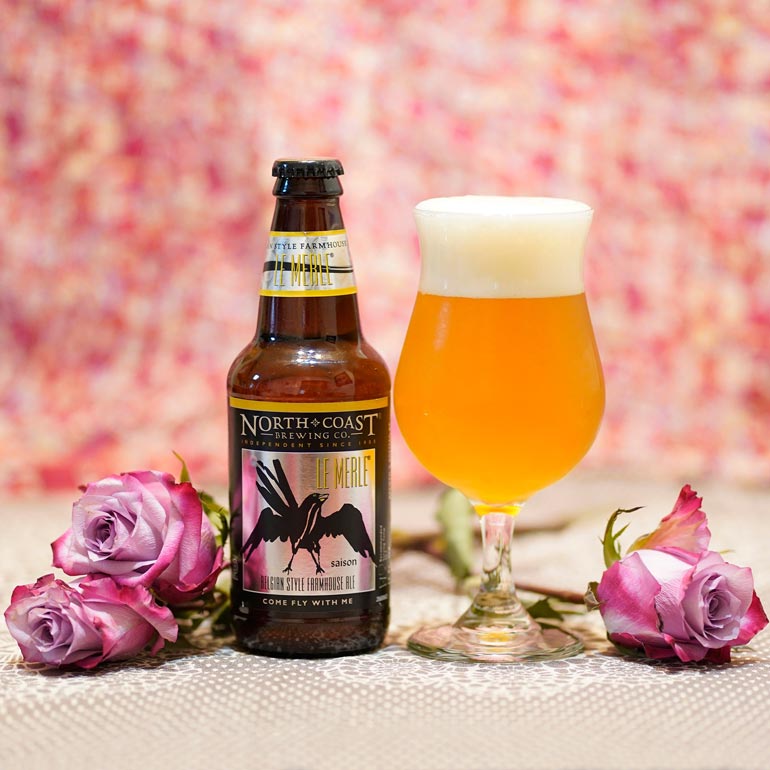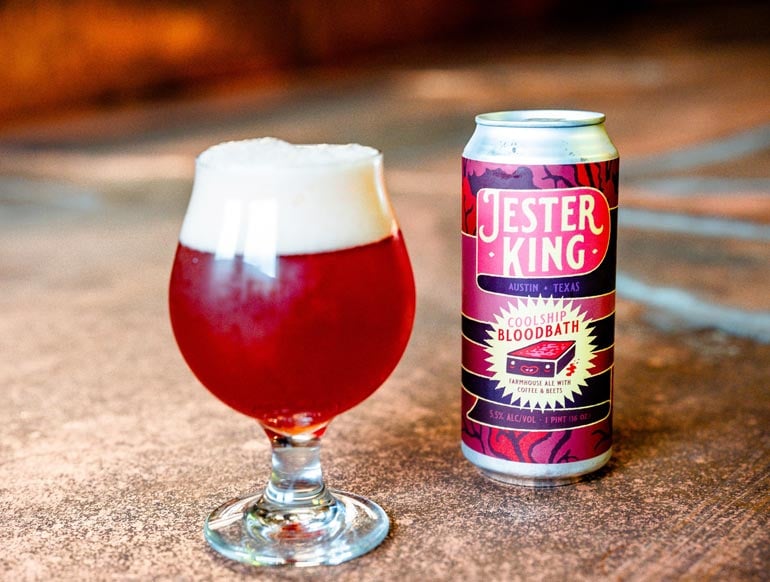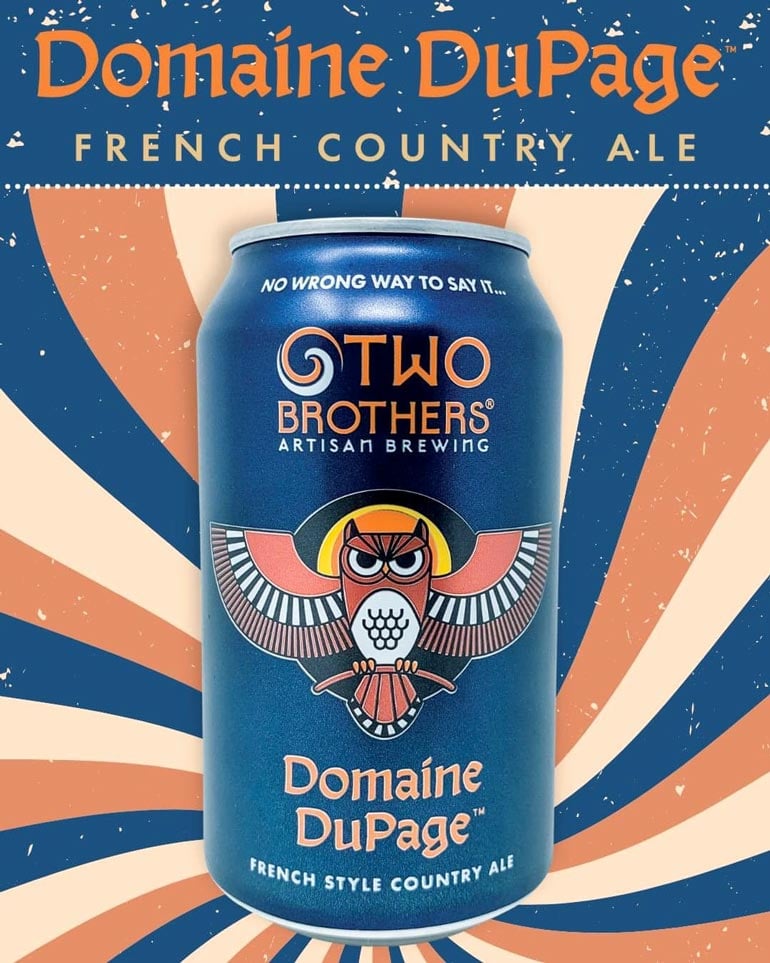Start 14-Day Trial Subscription
*No credit card required

Farmhouse Ale: The Distinctively Tart and Earthy Beer Style
Discover the history and flavors of farmhouse ales, a traditional style of beer that originated in farmhouses in Europe. Learn about the brewing process and the unique characteristics that make this a craft beer lover's favorite.
Discover the rich heritage and enduring appeal of farmhouse ale, one of the oldest and most beloved beer styles in history. Despite the passage of time, farmhouse ale remains a favorite among beer enthusiasts worldwide, evident in the plethora of options available today.
We all have that friend who sticks to a straightforward diet of meat, potatoes, and a basic lager, content with the familiar day in and day out. Yet, they might just need the right introduction to break out of their culinary comfort zone. Enter Farmhouse Ale. This approachable beer style dates back generations and delivers a tart, earthy punch alongside interesting zesty flavor notes of cloves, bananas and more. Not only that, but this beer pairs beautifully with myriad different foods including pizza, pasta and hearty meat dishes. So read on to investigate the details of this intriguing beer style, and, who knows, that persnickety friend might just find a new favorite!
Definition of Farmhouse Ale
Farmhouse ale, encompassing a diverse array of beer styles, holds a prominent position in the lexicon of brewing traditions. In the United States, "farmhouse ale" shares common ground with "saison," though globally, the term encompasses a spectrum of styles including Sahti, Gueuze, Koduõlu and Bière De Garde. Central to these styles is a rapid fermentation process, facilitated by specific strains of quick-acting yeast, resulting in distinctive flavor profiles and aromatic complexities. For a more detailed deep dive, explore the differences between saison and farmhouse ale.
Originally brewed within the confines of rural farmsteads, farmhouse ale epitomized the marriage of agricultural bounty and brewing craftsmanship. Utilizing grains cultivated on-site, these rustic ales were crafted within the farmhouse brewery, primarily for consumption by farm residents and workers. Today, while traditional farmhouse breweries endure, commercial enterprises have embraced the style, producing ales that pay homage to their agrarian roots.
Commercial breweries making farmhouse ales maintain fidelity to their heritage through the utilization of traditional ingredients, including specialized wild yeast strains, ensuring continuity with the original farmhouse brewing practices. Retaining the quintessential characteristics of farmhouse ales, these modern interpretations celebrate the rich tapestry of flavor and history embedded within this venerable beer style.
Characteristics of Farmhouse Ale
All farmhouse ales share certain qualities that sets them apart from other beers. Read on to explore the defining characteristics in all – or at least in most – farmhouse ales:
Unique Flavor Profile
Farmhouse ale boasts a flavor profile that is both tart and earthy, derived from a meticulous blend of ingredients. Balanced ratios of malt, hops, and occasionally sugar, coupled with a specific wild yeast strain, create a rustic charm unparalleled in the world of beer. With its unfiltered nature, farmhouse ale preserves its full-bodied flavor, captivating discerning palates with its distinct taste.
Low Bitterness
Setting itself apart from other beer styles, farmhouse ale offers a gentle bitterness, appealing to those seeking a more nuanced taste experience. Unlike hop-dominant brews, farmhouses beers achieve a delicate balance, thanks to its unique yeast strain. This characteristic allure draws enthusiasts seeking a milder, yet flavorful, brew.
Natural Carbonation
One of the defining features of farmhouse ale is its natural high carbonation, achieved through a sophisticated fermentation process. As yeast interacts with sugar within the fermentation vessel, carbon dioxide is naturally produced, infusing the beer with effervescence. This inherent carbonation enhances the drinking experience, adding to the charm of this timeless beer style.
Origins and History of the Beer Style
Farmhouse ales have a storied history dating back to antiquity, originating from a time when farmers discovered that a portion of their own grain harvest could be utilized for brewing beer. Rooted in the agricultural landscapes of France and Belgium, these ales were traditionally brewed during the winter months and cherished throughout the seasons of crop planting and harvest, serving as quintessential refreshments (and traditional summer beers) for farm workers and owners alike.
The unique tradition of brewing this style gave rise to breweries attached to farms, where beer was crafted using locally grown grains and often fermented with wild yeast, resulting in what became known as 'farmhouse ales'.
Initially intended for consumption within the confines of the farm, the surplus production of farmhouse ales led to their commercialization as breweries began to produce more than could be consumed locally. This transition marked the emergence of farmhouse ales in the commercial market, catering to a broader audience beyond the agricultural community.
In recent years, fueled by a growing demand for distinctive beer styles and flavors, there has been a resurgence of interest in farmhouse ales. Modern commercial brewers have embraced this trend, producing farmhouse ales that adhere to traditional ingredient ratios, ensuring that the flavors reminiscent of the original farmhouse ales are preserved and celebrated in contemporary iterations of the style.
Unveiling the Distinctive Attributes of Farmhouse Ale
Discover the defining attributes of farmhouse ale, from its diverse color variations to its subtle bitterness and moderate alcohol content.
SRM (?): 5 – 22
IBUs (?): 21 – 40
ABV (?): 4.5% – 8.5%
Original Gravity (?): 1.050 - 1.070
Color:
Light, including blond, gold, amber and pale orange
Clarity:
Normaly crystal clear with minimal haze, though some styles can be hazier
Carbonation:
Effervescent
Alcohol:
Usually mild
Hops:
Very low hop flavor and bitterness
Malt:
Medium to high malt sweetness
How To Properly Serve Farmhouse Ale
The enjoyment of farmhouse ale extends beyond its taste to encompass the ritual of pouring. Read on to see the essential steps to ensure that each pour of farmhouse ale is a symphony of flavor and aroma, inviting you to savor the rich heritage and unique characteristics of this beloved beer style.
Elevate your farmhouse ale experience with expert serving techniques designed to enhance its enjoyment. Begin by selecting a clean, dry glass that complements the unique characteristics of the ale. Ideally, the temperature should hover between 7 to 12 degrees Celsius (44.6 to 53.6 Fahrenheit) to unlock its full flavor potential.
When pouring farmhouse ale, tilt the glass at a 45-degree angle to allow a gentle stream of ale to flow into the center. As the glass fills—reaching halfway—gradually straighten the glass to an upright position, leaving ample space at the top for foaming, typically around ½ to 1.5 inches.
To fully appreciate farmhouse ale's tart or earthy notes, opt for snifter, tulip, or thistle glasses, which accentuate its nuanced flavor profile. By following these steps, you'll ensure that every pour of farmhouse ale is a sensory delight, showcasing its rich heritage and distinctive taste.
Video on proper technique for pouring beer:
Farmhouse Brewing Techniques: A Journey into Tradition
Within the realm of farm-based breweries, a myriad of brewing techniques flourished, each contributing to the unique character of farmhouse ales. Among the notable methods were closed fermentation, open fermentation, and barrel aging, each imbuing the ale with distinct flavors and qualities.
Closed fermentation emerged as a prevalent technique, involving the confinement of grains, hops, and yeast within sealed vessels. This method allowed for controlled fermentation, resulting in a beer characterized by robust flavors and aromas. Typically enjoyed during intense farm work seasons, farmhouse ale served as a refreshing respite for weary laborers.
In contrast, open fermentation offered a glimpse into a more traditional approach, with grains fermented in unsealed vessels. While this method yielded cleaner tastes due to off-gassing, precautions were necessary to prevent contamination from harmful microorganisms.
Finally, barrel aging added depth and complexity to farmhouse ale, as the brew matured gracefully within wooden barrels. This process enhanced the beer's flavor profile and overall character, reflecting the passage of time and the craftsmanship of the brewer. From closed vessels to open fermentation and barrel aging, each technique contributed to the rich tapestry of farmhouse ale tradition, inviting enthusiasts to savor its history and heritage.
Farmhouse Ale Ingredients: Dive into Tradition and Variation
As this beer style is steeped in tradition, boasts a diverse array of ingredients that contribute to its distinct flavor profile. Across different regions and even within the same locale, variations in ingredients abound, reflecting the rich tapestry of farmhouse brewing practices.
Malt: At the heart of farmhouse ale lies malt, typically sourced from barley. However, brewers may also incorporate wheat, rye, rice, or corn malt to impart unique flavor nuances. Malt flavors serve as the foundation of the style, lending depth and character to the final brew.
Oats: Oats play a crucial role in enhancing the texture of the style, imparting a creamy or velvety mouthfeel. This addition contributes to the overall sensory experience, elevating the ale's appeal to discerning palates.
Hops: Responsible for bitterness, hops are a key component of farmhouse ale. While some brewers utilize traditional alpha hops, others experiment with dry hops to achieve desired flavor profiles. The careful selection of hops adds complexity and balance to the brew.
Yeast: Central to fermentation, yeast drives the transformation of wort into beer. Norwegian Kveik yeast is commonly employed in farmhouse ale production, infusing the brew with distinctive aromatic and flavor characteristics.
Sugar: Occasionally, brewers augment this style with sugars such as cane sugar or honey. These additions not only aid fermentation but also contribute to the beer's overall taste profile, imparting subtle sweetness and complexity.
Beyond these standard ingredients, farmhouse ale is a versatile enough beer style that it can be brewed effectively with a wide range of interesting ingredients, ranging from various fruits and vegetables to even coffee!
From malt to yeast, each ingredient in this style plays a vital role in shaping its identity and flavor. Embracing tradition while welcoming innovation, farmhouse ale continues to captivate enthusiasts with its rich heritage and dynamic character.
Elevating Your Dining Experience: Farmhouse Ale Food Pairings
Farmhouse ale's dry finish and nuanced flavor profile make it an ideal companion for a variety of culinary delights. Discover the perfect food pairings that enhance the taste and elevate your enjoyment of farmhouse ale:
Pepperoni Pizza: The distinctive malty base of pepperoni pizza harmonizes perfectly with the outstanding malt base of farmhouse ale. This classic pairing creates a symphony of flavors, making it a delightful combination for any occasion.
Risotto: Rich and creamy risotto with its grainy flavor provides a perfect balance to the hops in farmhouse ale. The complementary textures and flavors of risotto and farmhouse ale create a palate-pleasing experience that is both satisfying and indulgent.
Grilled Meat: Whether it's burgers, sausages, or grilled chicken, farmhouse ale's tart and earthy flavor complements the savory richness of grilled meats. The robust taste of the ale enhances the savory notes of the meat, creating a delectable fusion of flavors.
Cheeses: Farmhouse ale's earthy flavors pair beautifully with a variety of cheeses, adding depth and complexity to each bite. Goat cheddar, Gouda, Camembert, and Brie are excellent choices that accentuate the unique characteristics of farmhouse ale, creating a memorable tasting experience.
Indulge in the art of food pairing and elevate your drinking experience with these delightful culinary combinations. Whether enjoying a casual meal or hosting a gathering, these pairings are sure to delight your taste buds and leave a lasting impression.
Popular Brands Producing Farmhouse Ale
With a plethora of farmhouse ale brands available globally, choosing the perfect brew can be a delightful challenge for beer enthusiasts. Here are some of the most popular farmhouse ale brands in the US market, each offering a unique taste experience:
Das Wunderkind by Jester King Brewery: Crafted in the Belgian/French farmhouse ale tradition, Jester King Brewery Das Wunderkind offers complexity and spice in every sip. This bottle-conditioned ale boasts an enticing aroma and an easily palatable ABV of 5.0%. Drink up!
Four by Upright Brewing: Hailing from Oregon, USA, Four by Upright Brewing is a Saison-style farmhouse ale with a modest 4.5% ABV. Brewed with wheat-based malt, this ale delivers a distinctive flavor profile that pairs effortlessly with a variety of foods, thanks to its dry finish.
Hennepin by Brewery Ommegang: Affordable yet high-quality, Ommegang Hennepin is a classic farmhouse ale crafted in the Saison tradition. With a balanced ABV of 7.7%, this ale offers a satisfying mouthfeel and a range of delightful aromas, making it a versatile choice for any occasion.
Domaine Dupage by Two Brothers Brewing Co.: Breaking away from the Saison tradition, Domaine Dupage is a Biere de Garde-style farmhouse ale by Two Brothers Brewing Co. Based in Illinois, USA, this ale boasts a respectable ABV of 6.2% and offers a perfect balance of sweetness and spiciness, with a smooth, dry finish.
Le Merle by North Coast Brewing Co.: For a refreshing and balanced farmhouse ale experience, consider North Coast Brewing Co. Le Merle. With a moderate ABV of 7.9%, this ale offers a bready, grainy flavor profile that pairs seamlessly with a wide range of dishes, making it a versatile choice for any occasion.
Farmhouse Ale Reviews & Best Brands
Here are the highest-rated Farmhouse ales that have been evaluated in The Beer Connoisseur's Official Review.
We recommend seeking these outstanding examples of the Farmhouse ale style.
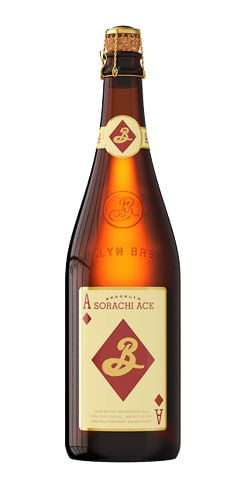
Sorachi Ace
Brooklyn Brewery
Rated 98 (World Class)
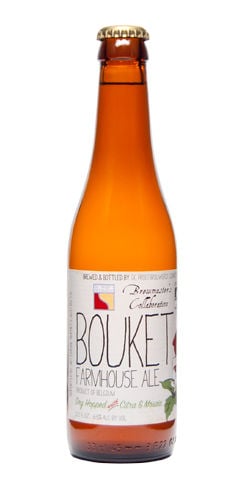
Bouket
Trillium Brewing and De Proef Brouwerij
Rated 97 (World Class)
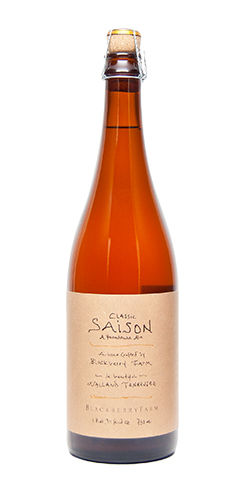
Classic Saison
Blackberry Farm Brewery
Rated 96 (World Class)
Judging Criteria for Farmhouse Ale
The Beer Connoisseur’s Official Review is conducted in a single-blind format that adheres to the Beer Judge Certification Program (BJCP).
The BJCP does not have a criteria for farmhouse ales, as they're not an "official style," but the organization does mention that the term "farmhouse ale" as interchangeable with the saison style. As such, the criteria for reviewing Saison is as follows:
Style Family: Strong Belgian Ale, Category 25
- Category 25A. Belgian Blond Ale
- Category 25B. Saison (Farmhouse Ale)
- Category 25C. Belgian Golden Strong Ale
Access the BJCP 2021 Style Guidelines for a full description of the Saison style.
Frequently Asked Questions
What makes a beer a farmhouse ale?
In essence, farmhouse ales are characterized by their rich history and diverse brewing techniques. Traditionally, these ales were crafted at breweries attached to farms, utilizing grains grown onsite. However, in modern times, farmhouse ales are defined by their use of specific yeast strains, such as Kveik, and their unique flavor profiles, colors, ABV and IBUs.
What is the difference between a farmhouse ale and a saison? Is saison a farmhouse beer?
While farmhouse ale serves as the overarching category, saisons represent a specific sub-style within this genre, originating from Belgium. Saisons are known for their distinct Belgian origins and contribute to the broader farmhouse ale tradition. A Saison is one of the ‘sub-styles’ within the broader farmhouse ale style. Therefore, a Saison is really a type of farmhouse ale: specifically one made by Belgians.
What flavors are in farmhouse ale?
Farmhouse ales offer a wide range of flavors, including earthy, spicy, and fruity notes, influenced by their core ingredients and brewing methods. Each sip unveils a complex interplay of flavors that tantalize the taste buds. There is a wide range of flavors that are to be found in farmhouse ale, including earthy, spicy, and fruity flavors – depending on the beer’s core ingredients and enrichments.
What are some great farmhouse ale breweries outside the U.S.?
Beyond the United States, renowned farmhouse ale breweries can be found across the globe. Notable examples include Jovaru Alus and Kaimiškas in Lithuania, Pihtla in Estonia, Brasserie Thiriez in France and Brasserie de la Senne in Belgium. These breweries are celebrated for their traditional craftsmanship and distinctive sweet flavors.
What are the countries traditionally known for producing Farmhouse ales?
Belgium and France have long-standing traditions of farmhouse ale production. Additionally, countries in Northern Europe, such as Norway (particularly western Norway), Denmark, Germany, Sweden, and Latvia, also boast strong ties to farmhouse ale brewing, contributing to the rich tapestry of this beloved beer style.
From Farmhouses To Your Kitchen: Our Take on Farmhouse Ale
Farmhouse ales are an enjoyable and interesting beer style that deserves more attention among modern beer drinkers.
While crisp craft lagers and IPAs are a dime a dozen, a tasty, flavorful and intriguing farmhouse ale is far rarer – and that's simply a shame. Any beer connoisseur knows that farmhouse ales and other unusual styles often provide the highest ceiling for craft beers.
One can simply taste the craftsmanship upon sipping one of these styles, so do yourself a favor: If you see a farmhouse ale on tap at your local watering hole, branch out of your standard order and give it a try. You won't be sorry!
Photos Courtesy Respective Breweries



